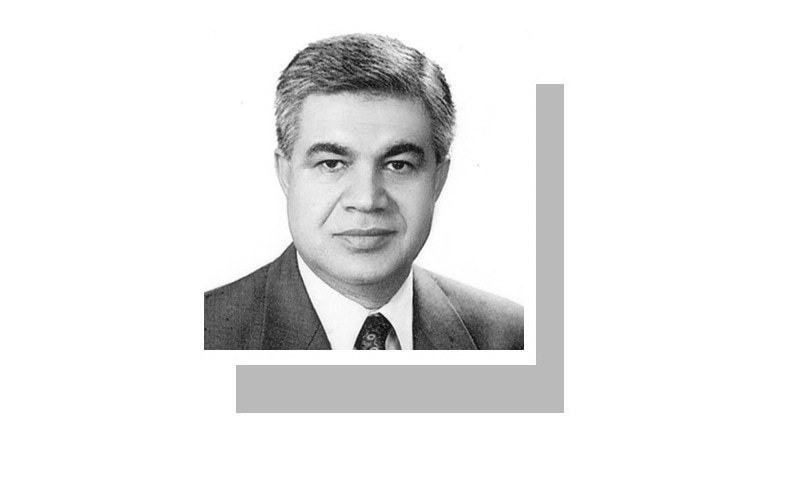IN December, Prime Minister Imran Khan called for the creation of wealth to put Pakistan’s development on an upward trajectory. But this is one journey that the majority of the world has failed to make; despite immense and growing literature on the subject, the solution still eludes us.
The earliest theory of economic development was propounded by Adam Smith in his magnum opus, An Inquiry into the Nature and Causes of the Wealth of Nations. He believed in laissez-faire, that markets were self-regulating and must not be interfered with by government, that this invisible hand, consisting of forces of demand and supply, would achieve an efficient level of production, consumption and distribution of goods in society.
For the markets to self-regulate, perfect competition and consumer sovereignty must prevail. Monopolies and monopolistic practices must not be allowed by a government. Individuals, while being guided by self-interest, unintentionally promote public benefit. Smith also advocated free trade among nations, believing that it brought wealth and prosperity to individuals and nations, thus increasing the sum total of human welfare.
The World Bank’s recently published The Changing Wealth of Nations 2018, unlike Smith’s philosophical treatise, looks at the practical aspects of development after decades of failures. The report covers 141 countries for 20 years (1995-2014). It does not consider GDP as the most important aspect of development, as commonly believed.
How likely are we to achieve what has eluded many nations?
Its emphasis is on the assets of wealth, which are produced capital, natural capital, human capital and net foreign assets. “GDP indicates whether a country’s income is growing; wealth indicates the prospects for maintaining that income and it’s growth over the long term,” the report says. GDP plus assets equal the country’s economic health. Per capita wealth must grow if a country aspires for higher standards of living and wealth.
Human capital is the most important component of wealth globally. It is the present value of the future earnings of the labour force. To reap ‘demographic dividend’ requires education, the actual learning taking place in schools and after leaving schools. Next is investing in the health of the population. According to the report, human capital accounts for 70 per cent of wealth in high-income countries, while in low-income countries natural capital makes up nearly half (47pc) of wealth.
Natural capital is agricultural land, forests, protected areas, minerals, oil, coal and gas. It is measured as the discounted sum of the values of the rents generated over the lifetime of the asset. It is the sustainable use of such resources that is important. Whatever rent is generated from such resources should go into produced capital, education, health, promotion of agriculture and diversification of economy because natural resources will ultimately deplete. Countries with abundant natural resources must avoid the ‘resource curse’, as Saudi Arabia has lately realised.
According to the report, Pakistan’s total estimated per capita wealth (2014), in US dollars, is 22,182. Of this, produced capital is 3,029; natural capital 5,982; forests (timber plus non-timber) 12; protected areas 345; cropland 1,572; pastureland 3,759; subsoil assets 294; human capital 13,587; and net foreign assets -416.
Reams of paper have been written and theories advanced in development economics on how to escape from the club of least developed countries to developed ones. That highway to heaven, however, is very difficult to find. In the extreme views of dependency theorists, the highway is closed to latecomers. In colonial times, the LDCs were first exploited by unrequited transfers and by supplying cheap labour and markets for capitalist goods — continuing to this day in the form of neo-colonialism.
The world economy is taken as a unit in which there are two categories — centre and periphery. Growth in the periphery is blocked because they are complementary and dominated. No indigenous capital accumulation can take place because the surplus is automatically transferred to the centre. This is explained by subtle mechanisms of multinational corporations, transfer pricing, the theory of unequal exchange, and by the secular decline in the terms of trade against the LDCs.
Part of surplus is consumed by the local bourgeoisie that is in collaboration with external exploiters. The national bourgeoisie stop being ‘national’ and cannot fulfil their role. Dualism exists in the economy — a modern sector and a large pre-capitalist sector. It is necessary for development that the former should replace the latter but this does not happen. Internal collaborators and external forces keep the system intact to maintain a repository of cheap labour.
Good luck to the prime minister and his economic team in his quest for wealth creation.
The writer is a former civil servant and former interim minister.
Published in Dawn, March 4th, 2019













































